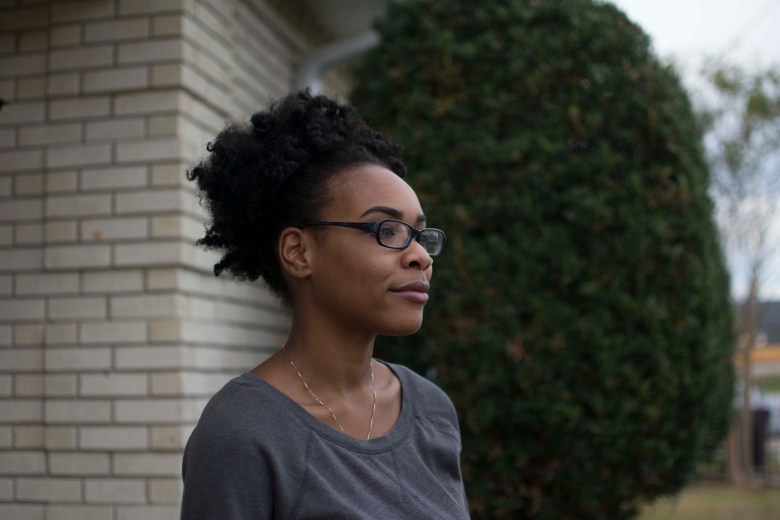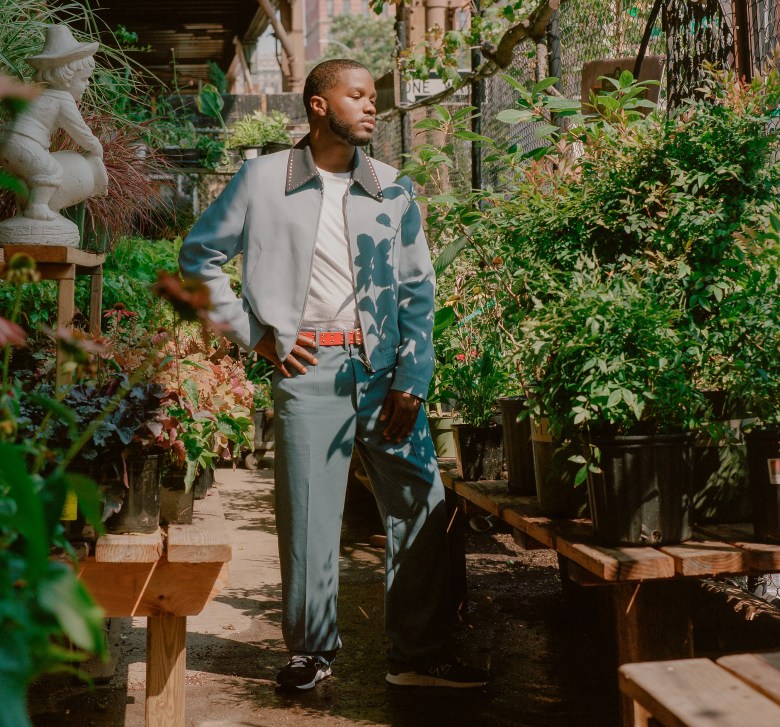|
Listen to this article here
Getting your Trinity Audio player ready...
|
ViiV Healthcare is a global pharmaceutical company dedicated to eradicating HIV (Human Immunodeficiency Virus) through grant funding, ethnographic and scientific research, medicine, storytelling, sponsorships, advocacy, educational resources, and community health work.
They’re also combatting the stigma around HIV care, education, prevention, and treatment. The truth is that anyone sexually active can be affected by STDs (Sexually Transmitted Diseases) and STIs (Sexually Transmitted Infections).
According to the Centers for Disease Control and Prevention (CDC), in 2022 over 38,000 people who were tested received an HIV diagnosis. African Americans made up 38% of the total, and young people from the ages of 13-34 accounted for 56% of the diagnoses. And while the Southern region of the United States accounted for more than half of the HIV diagnoses, Louisiana’s new HIV diagnoses have dropped by 11% from 2018 to 2022.
In 2010, ViiV Healthcare launched the Positive Action Southern Initiative (PASI). The Black Wall Street Times interviewed the Director of Corporate Communications, Bithiah Lafontant.
She said, “PASI reaches 13 states across the South (including Louisiana) and is focused on supporting community programs that engage those most disproportionately impacted by HIV. Since PASI’s launch, ViiV has worked in New Orleans to close gaps in care for people disproportionately affected by HIV and to support organizations that expand and enhance linkage to care, re-linkage, and engagement projects.”
The Impactful Work of ViiV Healthcare
Two years ago, the Louisiana Department of Health reported that 7,484 people in New Orleans were living with HIV. Within the report, 65% of the people identified as Black. Women of all races make up 28.5% of the total, with more than 1,800 living with HIV.
Lafontant shared, “New Orleans has one of the highest rates of HIV transmission among large metropolitan areas in the United States. We know that if we are to successfully end the HIV epidemic for all, it is essential that we focus on cities like New Orleans where the epidemic is most acutely felt.”
ViiV Healthcare understood the shortage of effective HIV awareness campaigns and community programs throughout the state. Especially centered on Black women and Gay and Bisexual men of color.
With this understanding, ViiV helps fund local programs and services that deliver holistic and comprehensive care for individuals living with HIV. Some funded organizations include Brotherhood, Inc., Frontline Legal Services, and the Institute of Women and Ethnic Studies. “As evidenced by the breadth of the different types of programs and organizations we fund, we aim to address the intersectional issues that impact people living with HIV, such as equitable housing and accessible mental health services,” Lafontant said.
In addition, ViiV Healthcare also provides support to organizations throughout South Louisiana. This includes the Southwest Louisiana AIDS Council in Lake Charles and Family Service of Greater Baton Rouge.
The funding support from ViiV enhances the programming, services, and projects for these necessary organizations.
Lafontant expressed, “Since 2010, ViiV Healthcare has provided over $80 million in funding to the Southern region of the United States to help end the HIV epidemic. Through our funding, grantees have been able to support populations that experience high levels of stigma and systemic barriers, such as people experiencing homelessness, people who engage with sex work, and people who inject drugs.”
Networks That Care: An Ethnographic Research Study of Black Women in New Orleans

Conceived and funded by ViiV Healthcare as a part of the Positive Action for Women Initiative, Networks That Care is an ethnographic study on Black women in New Orleans who have tested for HIV and/or are living with HIV.
In the report, researchers point out the correlation between racial disparities, historical oppression, and personal and communal gender-based violence. This includes housing insecurity, misogynoir, sexual assault, higher rates of incarceration, stigmas surrounding HIV and AIDS, and lower employment opportunities. Showing that multiple systemic and social factors discourage health prevention, treatment, and care for Black women.
The interviews included eighteen cisgender and transgender women, and their Networks That Care: 20+ family members, friends, and case workers. In addition, community activists and academic leaders in sexual health, gender, and race studies were interviewed.
Researchers found that participants felt more secure and cared for when their healthcare providers did not discriminate or judge them. Consistent long-term health care and a solid support system were also important to them for health security.
Challenges Black Women in New Orleans Face
Women also shared some of their challenges while navigating their sexual health journey. Misinformation, shame amongst cisgender women living with HIV, and negative consequences when sharing their status, were some of the critical few.
The spreading of misinformation and misconceptions within communities can cause heightened fear levels. The study shared, “One woman, for example, could not shake the idea that there might be some small chance of passing HIV on to her son through everyday contact. She said that she didn’t kiss him for the first year of his life and that she constantly bleached surfaces in her house. Through this ritual bleaching, she felt she was taking action to cope with the intense anxiety around contagion.”
In addition, social taboos play a part in Black women’s social determinants of health in New Orleans.
Some women worry about asking their partner to wear a condom for fear of verbal or physical abuse. Because of societal presumptions, some of the women, “…Associated HIV with identities more than behaviors and did not think that testing was especially important since they didn’t see themselves as being in groups’ ‘at risk.’”
Black women in New Orleans living with HIV face guilt, physical abuse, social isolation, and judgment when sharing their status. Some of the women blame their HIV status on themselves.
Every trans woman shared that they have experienced discrimination and mistreatment in health clinic settings. Some have found healthcare providers who don’t judge them, which creates comfort and care.
Ultimately, women believe their multiple networks of care (adopted queer families, biological family, friends, etc.) are necessary for the betterment of their holistic health.
Lafontant said, “This research has inspired a series of initiatives aimed at transforming the narrative around HIV prevention and care. In particular, our “Risks to Reasons” initiative, guided by Black women advocates across the country, aims to reframe how we discuss self-care and HIV prevention with Black women. It emphasizes the importance of engaging in meaningful conversations centered around desire, intimacy, and pleasure to shift the focus from stigmatizing terms like ‘risk,’ to instead spotlight the ‘reasons’ for HIV prevention and care.”
ViiV’s Summer Activations and Events

ViiV Healthcare is doing its best to meet the Southern community’s needs. Through cultural ethnography, representative research, awareness events, funding support, and sponsorships.
They’re also putting their money where their mouth is when it comes to having fun with a purpose. This year, ViiV sponsored some of the lively weekend events of Black Pride NOLA and Dallas Southern Pride. Artists included Saucy Santana, BJ So Cole, I’sis, Papiana, and more.
Founder of Black Pride NOLA, Nikki Lashaè expressed on Instagram, “I truly want to say a huge Thank you to everyone that came out this past weekend to celebrate year 4 and to everyone that made this moment possible. I appreciate Brandon [Dykes] along with ViiV Healthcare for truly advocating for what we are doing and continuing to support our efforts, to have a Black Queer community liaison that rallies behind you and sees the impact of what this could mean is truly incredible.”
ViiV Healthcare brought a presence with a positive impact for Essence Festival 2024. During their “Know-la” event, they provided awareness and education for Black women who wanted to learn more about HIV prevention and sexual health. Special guests included Big Freedia, Spinderella, DJ Kelly Green, DJ Rashida, and others.
ViiV’s ongoing mission to end the HIV epidemic will continue. They anticipate supporting initiatives and organizations to honor Southern HIV/AIDS Awareness Day (SHAAD) on August 20. Lafontant said, “…We look forward to continuing to bring attention to the disproportionate number of people living with HIV in the South…”


